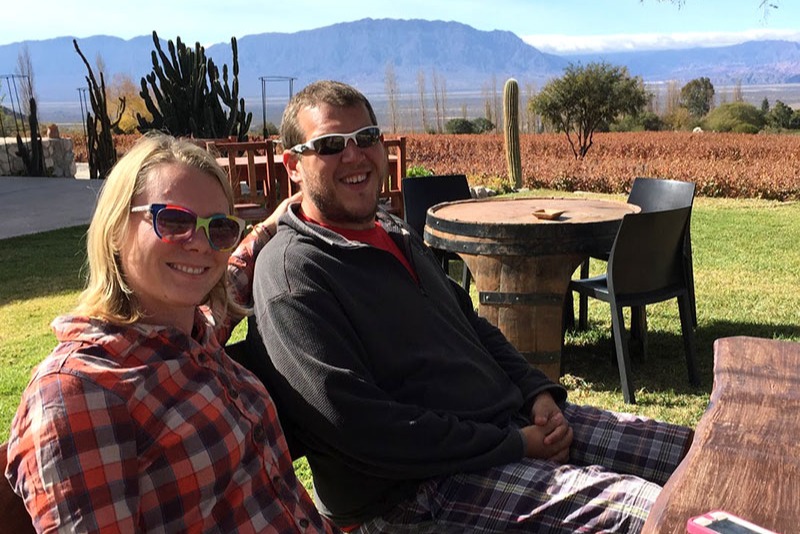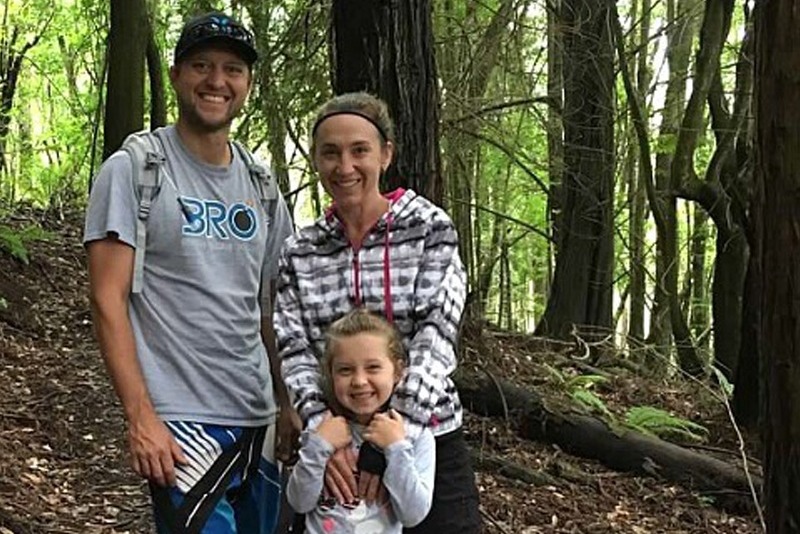For me, the biggest benefit of consulting is the opportunity to be exposed to so many different organizations and to learn from their different processes, challenges, and cultures. The healthcare industry can be complex and dynamic, so having that broad perspective helps me stay relevant and allows me to bring the best of my experiences to each client."
Everything You Need to Know About Health IT Consulting
Healthcare IT attracts passionate, hard-working people driven to enable the best possible experiences and outcomes for patients and their families. Achieving that goal, as anyone in our industry knows, is anything but simple. Becoming a health IT expert takes incredible commitment and dedication and can come to define your lifestyle, both professionally and otherwise.
Consulting is, for many people, an opportunity to regain balance in your life and apply your hard-earned experience where you think it will make the greatest impact. It offers passionate people a platform to build deeper relationships with both clients and colleagues, while earning the respect they've worked so hard to gain.
In short, it's an opportunity for those who want a better, more fulfilling life while continuing to make a meaningful impact on healthcare.
In this complete guide to health IT consulting, we answer some of the important questions we hear from those considering consulting as the next step in their careers. Whether you have years of Epic experience under your belt or are interested in taking your first step into health IT, there's something for everyone here. We invite you to explore the topics below and dive in further through the other resources we've pointed to.
What draws people to Health IT consulting
This is an important question if consulting is one of many potential career moves you may be considering. If you have prior Epic experience, consulting lets you apply the skills you've gained while enjoying greater freedom, choice, and balance in a familiar environment. For those coming to health IT for the first time, consulting offers a way to quickly gain experience in EHR support and healthcare strategy by immersing yourself in hands-on project work alongside some of the best mentors in the industry.
Consulting also offers an opportunity to continue enjoying the most satisfying parts of Epic life. Whether it’s maintaining relationships with fellow colleagues or continuing to work with a particular client team, consulting lets you build on your successes while giving you control over the direction you want to take your career.
I love having the freedom to choose my projects. Being able to pick the location and type of project is awesome. I have done implementations, report writing, optimizations, and project management since consulting. And being able to work from home 25 to 100 percent of the time is great for keeping a normal routine while also traveling to the client site when needed."

What are the options for Epic consulting?
In the world of Epic consulting, most people fall into one of three categories of work: traveling consultants, Managed Services analysts, and advisory consultants. We've summarized the defining points and characteristics of each type below.
Traveling consultants
The traveling consultant is the most common consulting path for EHR experts. It largely fits the image most people have in their mind when they think of consulting. Generally speaking, these consultants work on-site with one client at a time throughout the work week (which usually means Monday through Thursday here at Nordic). In exchange for a travel-heavy work life, they have the freedom to live anywhere they'd like. When working on-site, these consultants essentially become an extension of their client, working closely with their team to plan, conduct, and report on projects.
Traveling consultants can be salaried or compensated hourly, depending on their needs or preferences. Those who choose the hourly model typically thrive in environments where project variability is offset by higher potential reward — maximizing their earning potential and contract flexibility in exchange for a more project-to-project work style. For those who enjoy more consistent compensation and excellent benefits, the salary model offers greater stability and predictability.
What makes for success as a traveling Epic consultant?
Traveling consultants harness their strong interpersonal talents to lead people at all levels toward solutions to complex problems. In addition to being great communicators, they're also hands-on problem solvers, drawing on their skills and experience to identify and articulate challenges, present solutions, and work with client teams to bring great ideas to life.
Managed Services Analysts
Managed Services offers an opportunity in consulting for those who'd rather leave their suitcases in the closet and work from the office most of the time. Since this role is defined by exploring problems, we differentiate Managed Services from traveling consulting through the "analyst" title. This work tends to be more consistent from one day to the next and focuses on maintaining and supporting client systems in particular.
Given the different types and styles of work compared to other kinds of consulting, these folks enjoy a healthy salary packed with excellent benefits. And while prior health IT or Epic experience certainly helps, it's by no means required in order to be successful. Some of our most outstanding team members took their first step into health IT by joining our Managed Services team.
What makes for success as a Managed Services analyst?
While all great consultants and analysts are strong communicators, managers, and systems experts, crushing support and maintenance tickets takes a particularly strong attention to detail and an analytical approach to problem-solving. Rather than convening with executives and leading teams on-site, Managed Services analysts thrive as problem-solvers — assessing and solving the root causes of technical problems as a team. Whatever your background, if you’re creative, driven, and passionate about making a difference, Managed Services offers a strong career path in health IT.
Advisory consultants
Advisory consultants are somewhat similar to traveling consultants but rely on their many years of leadership experience to guide their work. As such, they tend to have slightly longer industry track records than the average consultant. These experts may have EHR experience or come from a different area of health IT altogether. Either way, their experience partnering with executives fuels their success when consistently delivering excellence in advising, strategy, and leadership.
What makes for success as an advisory consultant?
On top of extensive health IT experience, these consultants have a track record of success and responsibilities across the areas of:
- Executive engagement and communication
- Team management
- Navigating complex, politically-charged environments
- Facilitating meetings
- Solving problems
- Identifying and discussing both big picture concepts and detailed solutions
- Relationship building
- Project management
And most importantly, they do all of this while displaying the maxims that define the Nordic team.

We sat down with Ella Maloney, one of Nordic’s most tenured Managed Services analysts, to talk about why she loves her job and what to consider before applying.
Everything you need to know about Managed Services.

Tech-savvy? Love working in teams? Nordic Senior Consultant Rick Schmitz explains how these drivers can lead to success in Managed Services.
What is the typical lifecycle of a consulting contract?
Contract lifecycles tend to look very different between traveling/advisory consultants and Managed Services analysts. We've broken down the anatomy of each role below. (Keep in mind these are general descriptions and can vary from project-to-project!)
Traveling/advisory consultants
Week One
- First week check-in
Whether you’re new to Nordic or one of our long-time consultants, your first touchpoint with us during a project is a week-one check-in with a dedicated practice manager, practice director, or account director. During this first check-in, you'll chat at length about how the project is going, how you’re feeling about it, any struggles you’re having, and where some extra guidance could help, if needed. If you prefer keeping a tighter connection with us, we’re happy to schedule recurring check-ins with practice managers too. Our goal is to make sure you’re achieving a good balance of work and feel confident and competent in everything in front of you.
- Engagement completion summary
It might seem strange to talk about the completion of a project at the beginning of a project, but we promise there’s a method to our madness. The completion summary is an ongoing record our consultants update throughout the course of a project. Think of this as a weekly, bi-weekly, or monthly status update on what you’ve accomplished so far. At the end, we’ll use these updates to refresh your resume and make sure no accomplishment goes unacknowledged.
Week Two
- Engagement survey
Sometime within the first two weeks of a project, we survey both you and your client to make sure everyone is headed in the right direction and feels confident they have what they need to make the project a success.
Throughout contract
- Ongoing communication
Throughout your contract, you'll have regular check-ins with your home office team to answer questions, raise feedback, and work through any issues that arise. You may also have on-site gatherings with the home office to bond and get to know each other.
Approaching end of contract
- End-of-contract call
Typically, if you’re on a contract that’s three months or longer, we’ll reach out about 60 days before the end date to have an end-of-contract call. This is where we lean on your instincts to get a sense for whether or not there may be an opportunity to extend your project beyond its current end date, and if so, whether or not you’d like to be involved in it. For projects that are certain to end, we shift gears and discuss what you’d like to focus on working on next. For projects shorter than three months, we usually tackle these questions shortly after project start so we can get to work lining up a future project as soon as possible.
Managed Services analysts
Customer Projects
70% to 80% of time spent in Managed Services
- Queue maintenance
Managing active support tickets is a big part of Managed Services. This means making sure incoming client issues are handed off to the experts best suited to solve them while also ensuring customers are getting regular project updates when they're needed. We promise our clients that given the severity of the issue they bring to us, we’ll respond and resolve it within a certain amount of time. By diligently monitoring and maintaining our queue, we make sure we’re fulfilling that promise across the wide range of issues our customers rely on us to fix remotely.
- Specific issue resolution
After an issue leaves the queue and finds its way to the right consultant, we methodically dig in and examine it from every angle before putting the fix in place. This is classic break/fix work. For smaller issues, this typically begins by teaming up with the end user team for a discovery session to fully diagnose and ultimately resolve the problem. When larger issues make it to our desks, we’ll go a step further and launch a kind of “mini optimization.” This lets us step back and make comprehensive enhancements to ensure the customer’s system is performing at peak efficiency when the root cause isn’t so simple to address. While support tickets drive most of the issue resolution work, some tasks, such as test builds and manual system updates, aren’t captured through traditional tickets. In these cases, we’ll partner with end user teams to perform system maintenance and make more sweeping changes to bring their systems up to speed.
- Extended projects
When the same issue arises time and time again, resolving the root cause can require longer project work, which our Managed Services analysts gladly tackle too. Maybe a fix needs to be implemented throughout a number of client locations. Maybe new features need to be included in multiple ongoing projects. No matter what comes at us, our roster of highly experienced and qualified health IT professionals runs deep – an advantage that make us uniquely equipped to sit down at the table with healthcare organizations to plan and launch long-term projects handled entirely from home base.
Internal Projects
10% to 20% of time spent in Managed Services
- Management, mentoring, and growth enhancement
In addition to helping our clients keep their systems running at peak performance, Managed Services analysts also help each other be better each day. We encourage everyone to set aside time to follow their interests and tackle projects aimed at improving themselves or the team, both in and outside of Epic. For a few hours each week, Managed Services team members become more like business analysts. They identify areas of operations or professional growth ripe for enhancement before working with mentors, or being a mentor themselves, to accomplish their goals or help others accomplish theirs.
One of our current internal projects is enhancing our approach to on-call support. Since issues don’t stop at the end of the business day, we’re developing better ways to handle those situations from all angles."

I'm working on a project right now to leverage best practices for one area of Epic across seven sites. While that sometimes takes me out of some of that queue management and day-to-day issue resolution, it gives me a chance to work on something that’s still Epic-focused but also an internal project for ourselves. We're doing it to make our work better and more efficient for our customers."

Do I have to live in a certain area to be a consultant?
Consulting gives you freedom to live anywhere you want as long as you're willing to adhere to your clients' and teams' needs. Traveling consultants can live anywhere across the country and travel to their client site during the week. They also often have the opportunity to schedule "remote weeks" at a client's discretion. In Managed Services, you still have the option to work remotely, but many consultants choose to work from the office because they enjoy the collaborative nature of an office team.
Here at Nordic, a few of our consultants push the "live anywhere" mantra to its extreme, and we're all for it (as long as the WiFi is good). Check out their stories below.
Working as a consultant while traveling around the world

Learn how Nordic's Ike Glinsmann pursues his passion for health IT and travel from behind the wheel of his RV.
Consulting from an island in the middle of the ocean

Learn how Nordic's Jennifer Novotney found herself consulting for Nordic from Maui, Hawaii.
Learn more about healthy business travel
How to travel for business and stay happy, healthy, and sane
What's the work-life balance like in Epic consulting?
Many health IT experts get involved in consulting for the ideal mix of lucrative pay and better work-life balance. Consulting brings a degree of freedom and choice rarely seen in other professions, and firms do their best to ensure consultants are able to strike the right balance throughout all dimensions of life.
Here at Nordic, we go the extra mile to provide flexibility and support for all our team members. That's why we work with consultants to find contracts that fit their lifestyle (including 100% remote work or low-travel contracts) and offer results-oriented time off, so you can enjoy your passions outside of the office.
For new parents, we step in as a helpful advocate both internally and externally. We recognize the exceptional talent we have on staff and accommodate flexible work schedules and non-traditional workloads for new parents to help them keep their priorities focused where it matters most. And since consultants can live anywhere in the U.S., we work to accommodate family emergencies and extended leave situations when they arise.
Nordic is the best place I have ever worked in my 38 years in the workforce. It allows me great autonomy and the support I need!"

I've worked at multiple consulting firms, and I feel that Nordic lets me serve our clients the best. They trust me and respect me, and I have a lot of autonomy. I know that Nordic has an excellent reputation among customers, and I have heard some of them say they will hire more of us because Nordic always delivers. It makes me proud to work for them. They let me determine my travel schedule just working with the client, so I can get the work-life balance I want as long as the client is satisfied."

Learn how our consultants strike a healthy work/life balance at Nordic
How do I make sure I get the contracts I want?
A great consulting firm will make sure you're matched with client projects that fit your skill set, experience, and passions. Even before your interview, you should feel you're a strong candidate for the position and that the project is one you're excited to take on.
That said, interviewing successfully for a client project is a combination of research, preparation, and self-reflection – just like any job interview. Here are a few basic best practices you can use to craft a foolproof interview strategy:
Do your research.
Spend some time before the interview to find out more about the organization. The client's website is a great place to start. Gather basic information including size, location, mission statement, and other details relevant to the project, such as whether it's a standalone hospital or if it's part of a system. First impressions are important, and this information can help you build a meaningful connection
Come up with at least three questions you can ask the client. This shows that you have put some time into preparing and that you're taking the interview seriously. You may not get the opportunity to ask the questions, or you may find you have better questions to ask as you go, but doing the research can help put you in the right frame of mind.
Reflect on your strengths, weaknesses, and experience.
During your interview, you may be faced with the dreaded question, “What are your biggest strengths and weaknesses?"
Make sure you have a handle on areas you’ve excelled with in the past as well as areas you’ve struggled. Include examples and reasoning to support your statements. This applies to work skills in general, but also to the application you'll be supporting. You may be asked questions you don’t expect, but if you’ve taken the time to think about yourself, you’ll find that coming up with articulate responses isn't as difficult as you might assume.
If you have time in advance of your interview, you can work on tackling some of the knowledge gaps you have in your application. At a minimum, you should be aware of the latest and greatest functionality and areas where you are less familiar.
Make sure you know the logistics in advance.
Before your interview, make sure you have all the details regarding time, place, and format ironed out. Here are three best practices to keep in mind:
- Make sure you are on the same page about the time zone. If possible, it's a good idea to confirm this by email.
- Know who is calling whom and at which number and that you have reliable cell phone/internet reception.
- Work with your practice manager to schedule a mock interview.
On the day of the interview, make sure you're fully prepared. Give yourself more than enough time. If necessary, be flexible both before and after the interview to make sure you’re not running late or rushed. It’s normal to feel anxious about going to a job interview, but a little preparation can go a long way in making you feel calm, comfortable, and ready to talk about anything you’re asked. If you still don’t feel ready after preparing, ask a friend, family member, or colleague to help you practice. At the end of the day, remember that you’re an experienced consultant who’s interviewing because you’re great at your job. See yourself succeed.
When looking for new contracts, Nordic goes out of their way to find the right fit for my needs. We are compensated very fairly and have a great home office that support the consultants in all our projects and efforts."

I enjoy working with Nordic. I feel they have my best interests in mind when trying to place me in a contract. I always feel that I have a good support network and that I can get help if I ever need it."

Learn more best practices for crushing client interviews and the best first steps to take when starting your contracts:
I’m certified in certain Epic applications, but I don’t know if I want to stay in that application forever. Am I stuck because of my experience?
Consulting firms work hard to match consultants with projects aligned with their experience. That said, the work of a consultant usually spans much more than just application expertise and involves an ability to view an organization's issues holistically.
Here at Nordic, we do all we can to give our consultants what they need to be the well-rounded, multi-faceted healthcare advisors their clients need. Whether it's a new certification, additional training, or some other tool for continuous improvement, we help you grow your consulting career the way you want to.
Are there advancement opportunities in consulting?
I want to make sure I’m climbing the career ladder.
Unlike other careers, consulting doesn’t necessarily come with a yearly title change or a predetermined path to your next role. But while it may not look like the traditional growth ladder, consulting can provide an even better opportunity to improve as a leader and strategist. Developing your skill set and experience requires seizing opportunities outside your traditional experience and making yourself an invaluable presence at your client organizations.
Here are a few ways to advance in your career while consulting.
BE INTENTIONAL ABOUT YOUR GROWTH PATH.
Know what your goals are and carve the most direct path to them. Maybe you want to be the ultimate subject matter expert in your area. Maybe you want to sit at the table with hospital CEOs and work on innovating the next generation of healthcare systems. Whatever your goals, take some time to think about what you want before you decide how to best achieve them. Once you have an idea of where you want to go, you can start making intentional, informed moves in that direction.
LEVERAGE YOUR PROFESSIONAL DEVELOPMENT CAPABILITIES.
Nordic offers consultants the opportunity to pursue professional development and additional certification to help you grow your skills outside your original application or area of focus within Epic. Reach out to your practice manager or director to let them know your goals and direction, and which training opportunities are available to you. Your practice manager or director can provide context and helpful advice on where the industry is headed while watching for opportunities that match your path.
LEAD EVEN BEFORE YOU'RE A LEADER.
You may not be managing other people now, but it’s a good idea to act like a leader before you have the title. It can be challenging to rein in your social tendencies when you’re with your peers. Just remember that in a few years, you may be managing the people you’re socializing with today. It may be hard to make that transition if you haven't built yourself up as a leader before becoming one.
DEVELOP YOUR PRESENCE IN THE ROOM.
As a consultant, you’re often walking into a room of healthcare executives 20 years your senior — people with decades of experience in the industry and the connections to match. You will very rarely be the most tenured person in the room, nor should you be. The key is to trust your experience and knowledge and speak up when you can offer value.
BE FLEXIBLE AND OPEN.
While Nordic endeavors to offer you the best opportunities for your preferences, sometimes you’ll encounter a great project in a less-desirable location or in an area where you have less experience. Be open to these experiences even if they don't look ideal on paper.
Learn how our consultants view the importance of flexibility in their roles as consultants
The key to being a great healthcare consultant: flexibility
During my six years as a consultant, I’ve been able to branch outside my traditional application experience and develop my skills as a leader, project manager, mentor, and executive advisor — all without changing jobs."

Nordic continues to come through, and while I originally thought this would be a short, mid-term career path, after five years I can't imagine why I would ever leave."

Learn more about advancing your career in health IT as a consultant
Will I be able to advance in my career as a consultant?
What if I don't want to work where a consulting firm puts me?
Maybe you prefer to work in big cities or just the east or west coast. While some consulting firms adhere to a traditional recruitment and sales-oriented consulting model where recruiters bring you aboard only to have salespeople throw your resume in front of everyone they can, others structure their approach to consulting with a more personal touch.
At Nordic, we invest the time and energy to understand who you are, where your strengths lie, and where you want to work before helping you find projects that align with your goals and desires. Our consultants are given a powerful voice in deciding where they work and what kinds of projects they'll be a part of (within reason, of course). Like we mentioned above, Nordic practice managers and directors also act as resources and advocates for consultants to help them land projects they'll love.
What can I expect in terms of compensation?
Consultants are generally compensated through one of two models: hourly or salaried work. While we touched on the differences earlier, it's important to reiterate the details of each. Those who choose a salaried role are given the consistency that comes with pay stability and an excellent benefits package. Those who choose the hourly model typically thrive in an environment where project variability is offset by higher potential reward — maximizing their earning potential and contract flexibility in exchange for a more project-to-project work style.
Regardless of which path you take, great consulting firms make transparency central to both hourly and salaried consultants. At Nordic, we take this a step further by sharing our rates with every consultant to guarantee no surprises at any time. Add that to our straightforward expense procedures, and what you see is literally what you get.
Diversity is important to me. Will my diversity be celebrated as a consultant?
At Nordic, we recognize the need for change in our industry and are taking steps to bring about a more inclusive and diverse workforce. This includes partnering with organizations that work to improve corporate diversity and continually evolving our hiring to ensure we infuse the world of health IT with driven individuals of all identities, backgrounds, and experiences.
At our core, Nordic is a culture focused on delivering excellence, building relationships, and achieving outstanding results for healthcare providers and patients. We believe the first step in overcoming diversity challenges is building relationships and hearing important perspectives from those who can help us become leaders in change.
Our commitment to creating a diverse and inclusive workplace is encapsulated in our very first maxim: BE YOU. There's only one you. Your background and experiences are like no other. Your individuality sets you apart. It's celebrating our uniqueness – and what each brings to the whole – that helps to make us Nordic.
Are you a brilliant woman? We'd like to talk.
How are Nordic consultants making a difference?
We've highlighted a few of the ways our consultants are reaching out to go above and beyond. Explore their stories below.
Nordic's Eric Chow inspires leadership among Haitian high schoolers

Nordic Consultant Eric Chow teamed up with World Hope Chicago to empower high school students in Haiti to make positive, lasting changes in their community while finding meaningful lessons for himself in the process.
Nordic's Allison Cano helps serve Texas' homeless population

Nordic Senior Consultant Allison Cano has been working with the advocacy group, Jake's Heart for three years, helping eight-year-old Jake Garrett-McCann and his team deliver much-needed supplies and support to the homeless community in Texas.
From the first phone call with a Nordic employee I had my heart set on wanting to work here. I experienced a friendly professionalism that no other consulting firm that I spoke with offered. They helped me to navigate pieces of consulting that I had no experience with and led me to a better understanding about the industry as a whole in my first call. There are many companies in our industry competing for the same contracts and the same consultants. I have been with Nordic for several years and get approached by competitors on a regular basis, and I have yet to find one that can offer what Nordic offers me in terms of work opportunities, pay, benefits, and environment and culture. I plan to be a Nordic employee indefinitely.
